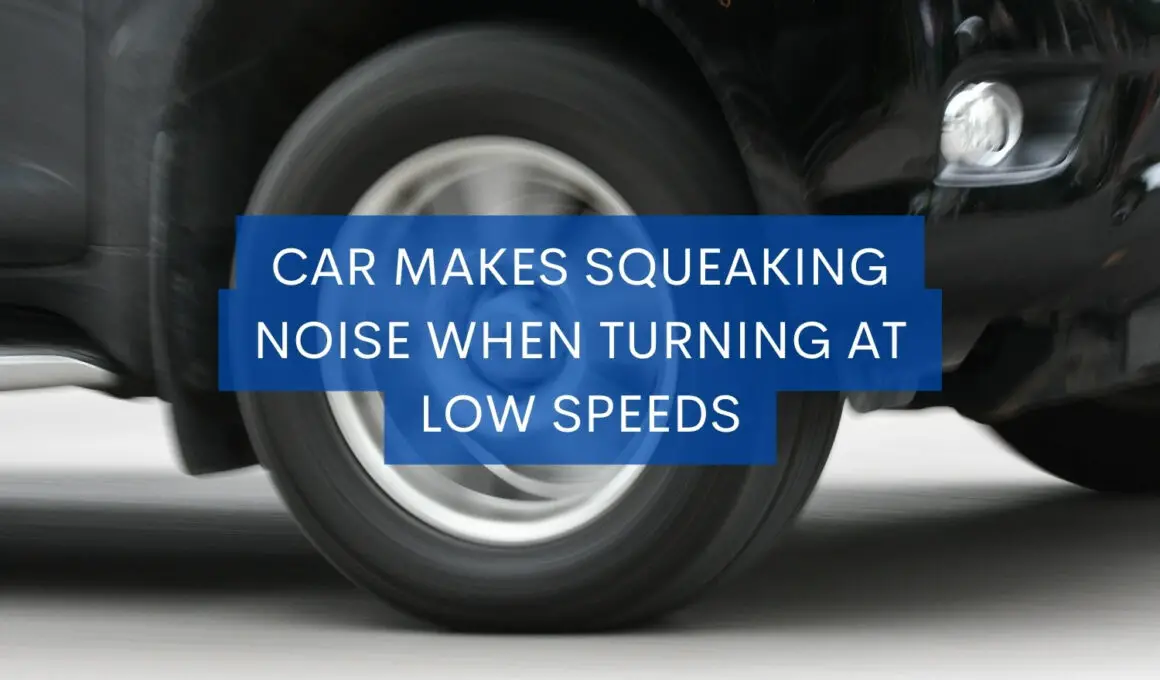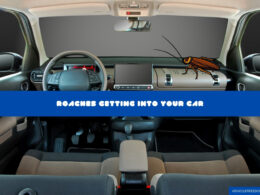In This Article Show
As an experienced mechanic and writer with over 15 years of experience, I understand your frustrations and concerns when your car starts making unfamiliar noises. A squeaking noise when turning at low speeds can be particularly worrying.
The cause of this squeaky disruption could stem from various components of your car, and the mystery often exacerbates the concern. But in this comprehensive guide, I plan to demystify this issue for you.
Drawing from my many years in the field, we will dissect the possible causes of this problem, give you a straightforward guide on diagnosing the source and offer practical fixes to get your car running smoothly again.
This issue, while common, doesn’t have to be a permanent fixture in your driving experience. Let’s go.
Understanding Car Noises
Vehicles, just like any other mechanical system, tend to make a lot of sounds during operation – from the reassuring hum of the engine to the rhythmic percussion of the tires on the road. These are the normal sounds your car makes, and we grow accustomed to them over time.
However, every so often, our cars hit the wrong note, producing an unfamiliar sound like the squeaking noise when turning at low speeds.
As an experienced mechanic with over 15 years in the field, I can assure you that these unusual noises are your car’s way of signaling that something isn’t right. It’s like your car’s ‘check engine’ light, but it’s an audible alert instead of a glowing icon on your dashboard.
These noises can range from clicks, pops, and knocks to the squeaks we focus on today. Each sound can signify a different issue, depending on when and how they occur.
For example, the squeaking noise when turning at low speeds can indicate several issues, each related to different components of your car. Several issues might be the culprits, from a worn-out power steering belt to damaged CV joints. However, diagnosing these sounds is not as complicated as it may seem.

Causes of Squeaking Noise When Turning at Low Speeds
Hearing a squeaking noise when turning your car, especially at low speeds, can be disconcerting. I’ve narrowed down the common culprits to a few primary causes. Understanding these causes is the first step toward remedying the situation. Here they are:
Worn Out or Damaged Power Steering Belt
The power steering belt is a crucial component that aids in smooth steering. However, it can wear out or damage over time and through extensive use. This wear and tear can often result in a squeaking or screeching noise, particularly noticeable when you’re turning your vehicle at low speeds.
Failing Power Steering Pump
The power steering pump plays a vital role in generating the necessary pressure to help easily steer the vehicle. A failing pump can cause the power steering to work intermittently, resulting in a squeaking noise when you turn the wheel.
Damaged CV Joints
Constant-velocity (CV) joints are a part of the drivetrain that facilitates power transmission through variable angles at a constant rotational speed. These joints can wear out over time or get damaged, often resulting in a distinct squeaking sound during turns.
Low Power Steering Fluid
Power steering fluid serves as the medium through which power is transferred from the steering wheel to the car’s steering mechanism. If the fluid levels are low, it could lead to squeaking noises, particularly when turning at low speeds.
Worn Suspension Bushings
Suspension bushings are tiny rubber components that cushion the car’s suspension system. Over time, these bushings can wear out and cause several issues, one of them being a squeaking noise when steering at slow speeds.
Each of these issues requires a unique approach to diagnose and fix.
How to Diagnose And Fix The Car Makes Squeaking Noise When Turning At Low Speeds Issue
Now that we’ve looked at possible reasons your car may be making a squeaking noise when you’re turning at low speeds, let’s discuss how you can find out exactly what’s causing the issue. Remember, safety first, so always be careful when checking your car.
1. Check the Power Steering Belt
One of the first things you can do is look at the power steering belt. You’re checking to see if it’s worn out or damaged. It’s usually located at the front of the engine and is attached to several pulleys.
How to fix
Replace or Adjust the Power Steering Belt
You may need to replace the belt if worn out or damaged. If it’s loose, you might be able to fix the problem by adjusting it. This job can be a little tricky, so you might want to ask a mechanic to do it.
2. Listen to the Power Steering Pump
The power steering pump is a device that helps you turn the wheel easily. If it’s failing, it can make noise. To check this, you would need to listen to the pump while your car is running. If it’s making a whining noise, it might be the cause of the squeak.
How to fix
Service the Power Steering Pump
If the pump is making a noise, it might need to be serviced or replaced. This usually requires a professional, as it can be a complex task.
3. Inspect the CV Joints
CV joints, or constant-velocity joints, help power your car’s wheels. You might find these near the axle of your car. They can wear out over time, which can lead to the squeaking noise. To inspect them, look for damage or wear and tear.
How to fix
Replace Damaged CV Joints
You’ll likely need to replace the CV joints if worn out or damaged. This is a job for a mechanic because it involves removing parts of the car’s drivetrain.
4. Look at the Power Steering Fluid Level
This fluid helps your steering to work properly. If the level is low, it might be causing the squeak. You can check this by looking at the fluid reservoir in your car, usually marked clearly.
How to fix
Refill Power Steering Fluid
If the fluid is low, try refilling it. You can buy power steering fluid from most auto parts stores. Check the car’s manual to see the correct fluid to use.
Check the Suspension Bushings
Suspension bushings are small rubber parts that help your car’s suspension. If they’re worn out, they might be causing the noise. These are a bit more challenging to check, but look for signs of wear or damage.
How to fix
Replace Worn Suspension Bushings
If the bushings are worn out, they’ll need to be replaced. This can be a difficult job and may require special tools. It’s usually best to have a professional do this.
Remember, if you’re ever unsure or uncomfortable doing these checks yourself, it’s always best to have a professional take a look.
When to Seek Professional Help
Fixing car problems can sometimes be done at home, but there are times when you need a professional mechanic. It’s important to know when to ask for help. Here’s a simple guide;
1. You’re Not Sure What’s Wrong
If you’ve done the checks we talked about but you’re still not sure what’s causing the squeak, it’s time to see a mechanic. They have special tools and knowledge that can find the problem quickly and accurately.
2. The Fix Is Too Complicated
Some fixes, like replacing the CV joints or the power steering pump, are very complicated. If you don’t feel confident about doing the job, or you don’t have the right tools, it’s better to have a professional do it.
3. The Noise Is Getting Worse
If the squeaking noise gets louder or happens more often, don’t wait. Take your car to a mechanic right away. It might be a sign of a serious problem that could damage your car or make it unsafe to drive.
Remember, there’s no shame in asking for help. Mechanics are trained to fix car problems and they have the right tools to do it safely. You can use our simple Ask a Mechanic feature on VehicleFreedom to chat with a master mechanic right away.
Wrapping it up
Dealing with a car that squeaks when you turn at low speeds can be a hassle, but remember, you don’t have to handle it alone.
Whether it’s a worn-out power steering belt, a failing power steering pump, damaged CV joints, low power steering fluid, or worn suspension bushings, there’s a fix available.
Some of these fixes can be handled at home, while others are best left to professionals. Never hesitate to ask for help if you need it. A well-functioning, silent car provides peace of mind and ensures a smooth, safe drive.













